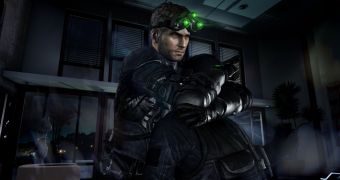Splinter Cell was a series built on stealth mechanics and silent takedowns and when Ubisoft tried to inject action into the mix, sales declined and fans rebelled.
But at least one leading developer working on the coming Blacklist entry in the series believes that it’s the complexity of the franchise that’s a big limit on its popularity.
Jade Raymond, the leader of the team at Ubisoft Toronto, tells Eurogamer that, “One of the things that held it back is despite all of the changes that have happened over the years, it’s still one of the more complex and difficult games to play.”
She adds, “It’s really about being intelligent and taking that time in the first phase to plan out how you’re going to do things, and understanding the elements, and even planning your gadgets and your load-out and being smart about it.”
Playing Splinter Cell video games as they were designed is very different from engaging with other titles in the stealth genre, which are more forgiving and tend to give gamers plenty of chances to deal with enemies out in the open.
Blacklist was first seen as a direct successor to Conviction, with a number of mechanics designed to allow players to quickly take out enemies even after they were spotted.
The fan base reacted badly to the gameplay snippets that Ubisoft delivered and since then, Raymond and her team have worked hard to emphasize the more stealthy elements of the game.
Blacklist will show main character Sam Fisher creating a Fourth Echelon in order to deal with a number of new terror threats in the United States.
Splinter Cell: Blacklist will be out on the PC, the PlayStation 3 from Sony and the Xbox 360 from Microsoft on August 20 in North America and three days later in Europe.

 14 DAY TRIAL //
14 DAY TRIAL //